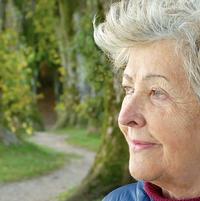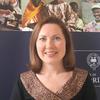I get excited when I hear about empowering stories involving older people or meet young people who genuinely see older people in a non-trivial way and free from ageist stereotypes. It is particularly encouraging when these young people come from societies where ageist stereotyping is still quite strong. I’m thinking here of Russia and the other countries that used to make up the Soviet Union, and it makes me hopeful to come across signs that these societies are changing in a positive, inclusive way and that they are in fact adjusting themselves to new realities. I start to wonder how long it will be before these kinds of cultural trends are strong enough to break down the stereotypes of dependency and infirmity that still exert such a powerful influence at the level of policy making and government. It remains the case in Russia and other post-Soviet countries anyone over the age of 55 or 60 is considered old, and the term “pensioner” carries a strong pejorative load: it implies loss of capacity, neediness and ill-health. Young people who see beauty and potential in people of older ages are going against the grain of the culture.
I was lucky to meet my colleague Darya Belostotskaya, a Russian researcher on ageing, and also a photographer. She is especially interested in taking photos of older people. Her vision is remarkable for the way she portrays older people and the individual stories in which her photographs are embedded. As a psychologist, she knows how to use the art of photography in therapeutic and engaging way and how to use it as a tool in dealing with early stage dementia, for example. She finished first in My Research in one Picture – Photo Competition 2017 and I am delighted to know that she is getting recognition for this work with older people that is making impact on our perception of ageing as a society.
Another story that has recently impressed me is that of Oldushka, a Russian model agency where all the models are older people. In fact their average age is over 60. The name Oldushka is an amalgam of the English word “old” and a common Russian suffix “ushka” which implies affection and tenderness for the person so named. The agency had its beginnings in a blog and the interest in photography of its founder, Igor Gavar. He noticed that of all the portrait photographs he posted on the blog, those picturing older people captured most attention and comment. He got positive feedback. What he was doing at the time was taking pictures of older people he met on the street, not professional models – though he was trying to choose as ‘subjects’ people who stood out for their style or showed what was to him a kind of inner beauty. Many of his subjects responded to this by a discovering themselves anew; they saw (and appreciated) themselves as he saw them. And out of this emerged the Oldushka project. The agency, which now has branches in Moscow, Omsk and Ufa, recruits its model by looking for charisma, spirit and openness to adventure. The professional agreement which they have with the agency requires them not to contract with any “anti-ageing” products or services and not to “photoshop out” wrinkles and grey hair. Age, experience, wisdom are values that the agency want to bring out, whereas height or weight don’t matter.
In traditionalistic Russian society, Oldushka’s very existence shook norms of behaviour and beauty that tend to marginalise older people. It invited controversy. But amazingly, the beauty showcased by Oldushka got picked up by established agencies and brands at home and abroad like Glamour, Afisha, ЦУМ, Bosco Magazine, Sony, and Gucci. Their models started receiving invitations to take part in different projects in art, music and fashion; there was an award in a beauty contest. For me the attention that Oldushka has received is a real success story. It has managed to break down a very “old” stereotype; and it has demonstrated a demand for what it has to offer. It tells us about a society that wants to highlight the new realities of ageing and it reminds us that they are not all alarming and gloomy, but very often empowering. None of these older people who let Igor photograph them had any idea about becoming a model before their contact with him. The possibility of inspiring others with their beauty and style when they retired or reached ‘silver age’ was entered their lives as something new and empowering. Even though the media commentary on Oldushka has not yet rid itself of language that carries a pejorative load, Oldushka’s existence is an invigorating sign of change.
About the Author
Katia Padvalkava is a sociologist researching ageing and working in later life in Central and Eastern European countries.
Comments Welcome:
We welcome your comments on this or any of the Institute's blog posts. Please feel free to email comments to be posted on your behalf to administrator@ageing.ox.ac.uk or use the Disqus facility linked below.
Opinions of the blogger is their own and not endorsed by the Institute
Comments Welcome: We welcome your comments on this or any of the Institute's blog posts. Please feel free to email comments to be posted on your behalf to administrator@ageing.ox.ac.uk or use the Disqus facility linked below.













